Out Now
The Infrastructure Issue
Current Issue
The Infrastructure Issue
JUN - JUL 2025

The cost of living crisis creates another thing to worry about – and something else to affect our mental health. It’s important to talk about this stuff, because the stats on tradie suicide are simply shocking.
Every year, almost 200 Aussies working in the trades die by suicide. That’s around four per week. Almost one every working day.
And it’s 70% higher than the national average for males employed in other industries. That’s right – you’re 2.3 times more likely to die by suicide if you’re a man and a tradie.
It’s a shocking stat, and in reality, the tough economic climate is only going to increase the mental health stress we’re all under. With prices rising, work potentially slowing down and the challenges of running your own business increasing, it’s more important than ever before to manage your mental health well – and be aware of how you’re feeling, as well as how your workmates are behaving.

“Tradies struggle with mental health because there is a lot of pressure placed on them to work hard for long hours and perform physically demanding jobs often in harsh weather conditions,” says Edward Ross, co-founder of TradeMutt, a social enterprise workwear business founded with Daniel Allen after one of Daniel’s close friends lost his life to suicide in 2015.
TradeMutt’s eye-catching colourful shirts are designed to start conversations, and half of the brand’s profits are donated to confidential chat service, This is a Conversation Starter (TIACS), which Daniel and Edward both founded, too.
How funky workwear breaks down mental health barriers to save lives | Daniel Allen | TEDxBrisbane
TIACS is a free text and call service that gets tradies quickly connected with a counsellor for no-cost conversations and help that can remain completely confidential.
To date, TIACS has supported almost 16,500 clients and delivered over 15,000 hours of conversation, demonstrating just how great the need for mental health support is across the country.
And TIACS is just one of a number of providers offering mental health help.
Lifeline is one of Australia’s primary support services, and has a range of tools available online to help recognise symptoms and provide support to people in need. It can direct you to specific tools to help deal with situations, as well as offering a free support service via phone, text or online chat.
Mates, meanwhile, is another charity that serves people working in the construction and energy sector, and offers a range of services, including general awareness training.
Ultimately, mental health and suicide are a massive problem for men in Australia (75 per cent of suicides are male) – and particularly those who work in the trades. Females aren’t immune, of course, so don’t think this is an exclusively male thing – however, as the stats show, the likelihood of males suiciding is significantly higher.
As part of a strong workplace culture, it’s a good idea to build mental health into the day-to-day. Make it part of your culture to talk about ‘feelings’, make it part of your culture to ask about each other’s lives, what’s going on, what’s impacting your mood.
By talking about things, getting them out in the open and making them a shared problem, it’s more likely you can find a solution.
Because until we do, those figures are going to keep on increasing.
Research has shown that 63 per cent of people aren’t confident they know the signs that someone might be struggling with life.
If your mates are showing any of these signs, have a chat.
1. Are they experiencing mood swings, are more withdrawn than usual or are unable to concentrate as well as they usually do?
2. Are they less interested in their appearance or personal hygiene?
3. Are they losing interest in something they were previously really engaged with?
4. Are they experiencing relationship or health issues?
5. Have they recently lost someone or something they care about?
If the answer to any of these questions is ‘yes’, then it’s likely they’ll need a friendly face and a good ear. It may be a step away from the usual pisstakes and banter, but ask your mate if he or she needs to talk. That’s what being a good workmate is all about.
Keep up to date with our latest news and competitions by subscribing to our regular newsletter.

Issue 183
OCT - NOV 2024

Issue 182
AUG - SEPT 2024

Issue 181
JUN - JUL 2024

Issue 180
APR - MAY 2024

Issue 179
FEB - MARCH 2024

Issue 178
DEC 2023 - JAN 2024

Issue 177
OCT - NOV 2023

Issue 176
AUG - SEPT 2023

Issue 175
JUN - JUL 2023

Issue 174
APR - MAY 2023

Issue 173
FEB - MAR 2023

Issue 172
DEC 2022 - JAN 2023

Issue 171
OCT - NOV 2022

Issue 170
AUG - SEPT 2022

Issue 169
JUN - JUL 2022

Issue 168
APR - MAY 2022
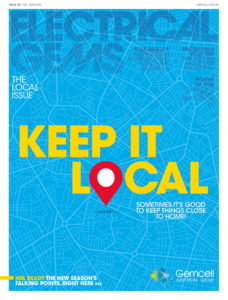
Issue 167
FEB - MAR 2022
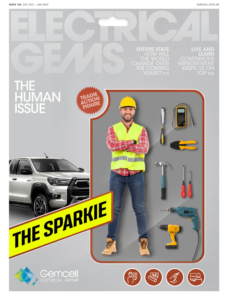
Issue 166
DEC 2021 - JAN 2022

Issue 165
OCT - NOV 2021

Issue 164
AUG - SEPT 2021
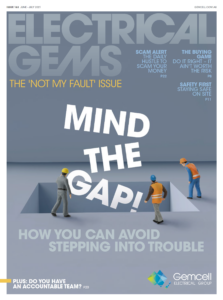
Issue 163
JUN - JUL 2021
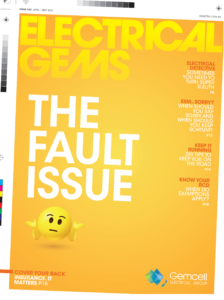
Issue 162
APR - MAY 2021

Issue 161
FEB - MAR 2021

Issue 160
DEC 2020 - JAN 2021

Issue 159
OCT - NOV 2020

Issue 158
AUG - SEPT 2020
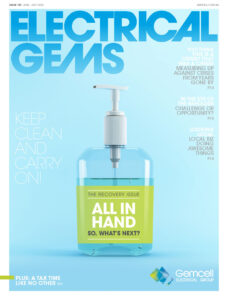
Issue 157
JUN - JUL 2022

Issue 156
APR - MAY 2020

Issue 155
FEB - MAR 2020

Issue 154
DEC 2019 - JAN 2020

Issue 153
OCT - NOV 2019

Issue 152
AUG - SEPT 2019

Issue 151
JUN - JUL 2019

Issue 150
APR - MAY 2019

Issue 149
FEB - MAR 2019

Issue 148
DEC 2018 - JAN 2019

Issue 147
OCT - NOV 2018

Issue 146
AUG - SEPT 2018

Issue 145
JUN - JUL 2018

Issue 144
APR - MAY 2018

Issue 143
FEB - MAR 2018

Issue 142
DEC 2016 - JAN 2017

Issue 141
OCT- NOV 2017

Issue 140
AUG - SEPT 2017

Issue 139
JUN - JUL 2017
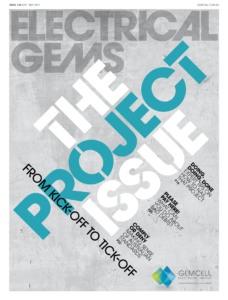
Issue 138
APR - MAY 2017

Issue 137
FEB - MAR 2017

Issue 136
DEC 2016 - JAN 2017

Issue 135
OCT - NOV 2017

Issue 134
AUG - SEPT 2016

Issue 133
JUN - JUL 2016
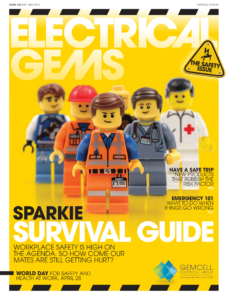
Issue 132
APR - MAY 2016

Issue 131
FEB - MAR 2016

Issue 130
DEC 2015 - JAN 2016

Issue 129
OCT - NOV 2015

Issue 128
AUG - SEPT 2015

Issue 127
JUN - JUL 2015

Issue 125
APR - MAY 2015

Issue 125
FEB - MAR 2015

Issue 124
DEC 2014 - JAN 2015

Issue 123
OCT - NOV 2014

Issue 122
AUG - SEPT 2014

Issue 121
JUN - JUL 2014

Issue 120
APR - MAY 2014

Issue 119
FEB - MAR 2014

Issue 118
DEC 2013 - JAN 2014

Issue 117
OCT - NOV 2013

Issue 116
AUG - SEPT 2013

Comments (0)
Write a Comment